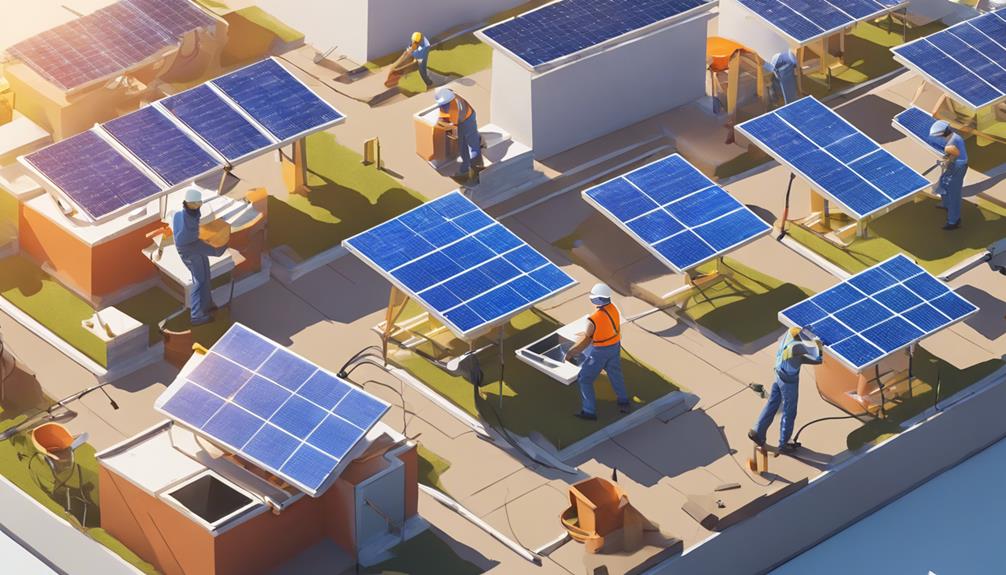
In recent years, solar energy has emerged as a viable alternative to traditional energy sources, offering a sustainable and eco-friendly way to power homes, RVs, and various appliances. Among the many options available, the 100 watt solar panel has gained popularity for its versatility and efficiency. This guide will delve into the benefits, uses, and essential considerations regarding 100 watt solar panels, helping you make informed decisions about harnessing solar energy.
Understanding 100 Watt Solar Panels
A 100 watt solar panel is a compact yet powerful device designed to convert sunlight into electricity. Typically measuring around 47 x 21 inches, these panels are ideal for various applications, ranging from camping trips to powering small appliances in off-grid setups. The nominal power output of 100 watts indicates the maximum power the panel can produce under ideal sunlight conditions. However, actual performance can vary based on factors such as weather, panel orientation, and shading. Understanding these variables is crucial for optimizing your solar energy system.
Key Benefits of Using 100 Watt Solar Panels
The 100 watt solar panel offers numerous advantages that make it an attractive choice for both beginners and seasoned solar users. Firstly, their compact size makes them easy to transport and install, making them perfect for mobile applications like RVs and boats. Moreover, they are budget-friendly, allowing users to enter the solar market without a hefty investment. Additionally, these panels require minimal maintenance, creating a hassle-free energy solution that can last for decades when properly cared for. Lastly, by utilizing renewable energy, you can significantly reduce your carbon footprint, contributing to a more sustainable future.
Applications of 100 Watt Solar Panels
The versatility of 100 watt solar panels allows them to be used in a wide range of applications. They are ideal for powering small devices such as lights, fans, and chargers for laptops and smartphones. Outdoor enthusiasts often use them to power camping equipment, ensuring they have electricity for essential gadgets. Additionally, these panels can be used in off-grid solar systems to power cabins or small homes. For those looking to build a DIY solar setup, 100 watt panels are an excellent starting point, providing a solid foundation for a larger system as energy needs grow.
How to Choose the Right 100 Watt Solar Panel
When selecting a 100 watt solar panel, it’s essential to consider several factors to ensure you make the best choice for your needs. Start by checking the panel’s efficiency rating, which indicates how well it converts sunlight into electricity. Look for panels with a higher efficiency rating to maximize power output in limited space. Additionally, consider the type of solar cells used; monocrystalline panels tend to be more efficient and space-saving compared to polycrystalline panels. Furthermore, assess the warranty offered by the manufacturer, as a longer warranty often indicates higher quality and reliability.
Installation Tips for 100 Watt Solar Panels
Proper installation is crucial for maximizing the performance of your 100 watt solar panel. Begin by selecting an optimal location that receives direct sunlight for most of the day, away from obstructions like trees or buildings. Ensure that the panel is mounted securely at the appropriate angle to capture sunlight effectively. If you’re installing multiple panels, consider using a solar charge controller to manage the power flow and protect your batteries. Lastly, always follow the manufacturer’s guidelines and consider consulting a professional if you feel uncertain about the installation process.
Connecting Your 100 Watt Solar Panel to a Battery System
If you plan to use your 100 watt solar panel to power devices when the sun isn’t shining, connecting it to a battery system is essential. Start by selecting a suitable battery type; deep cycle batteries are commonly used for solar applications due to their ability to withstand repeated charging and discharging. Use a solar charge controller to regulate the charging process and prevent overcharging, which can damage the battery. Connect the solar panel to the charge controller, and then connect the controller to the battery. This setup ensures that you can store energy generated during the day for use at night or during cloudy weather.
Cost Considerations and Savings with 100 Watt Solar Panels
Investing in 100 watt solar panels can lead to substantial long-term savings on energy bills. While the initial cost of purchasing and installing solar panels can be a barrier, many users find that the return on investment is worth it. Factors such as local electricity rates, available incentives, and the amount of energy you plan to produce will influence your savings. Additionally, many governments offer tax credits and rebates for solar installations, further reducing upfront costs. As energy prices continue to rise, having a reliable source of renewable energy can provide financial relief and peace of mind.
Final Thoughts: Embracing Solar Energy with 100 Watt Solar Panels
Adopting solar energy solutions like the 100 watt solar panel contributes to a sustainable lifestyle and offers practical benefits for a variety of applications. Whether you’re looking to power small devices, create a backup energy source, or reduce your carbon footprint, these panels are a fantastic choice. By understanding their benefits, applications, and installation requirements, you can harness solar energy effectively and enjoy the advantages of renewable power. As technology continues to advance, the future of solar energy looks promising, making now the perfect time to invest in 100 watt solar panels for your energy needs.





